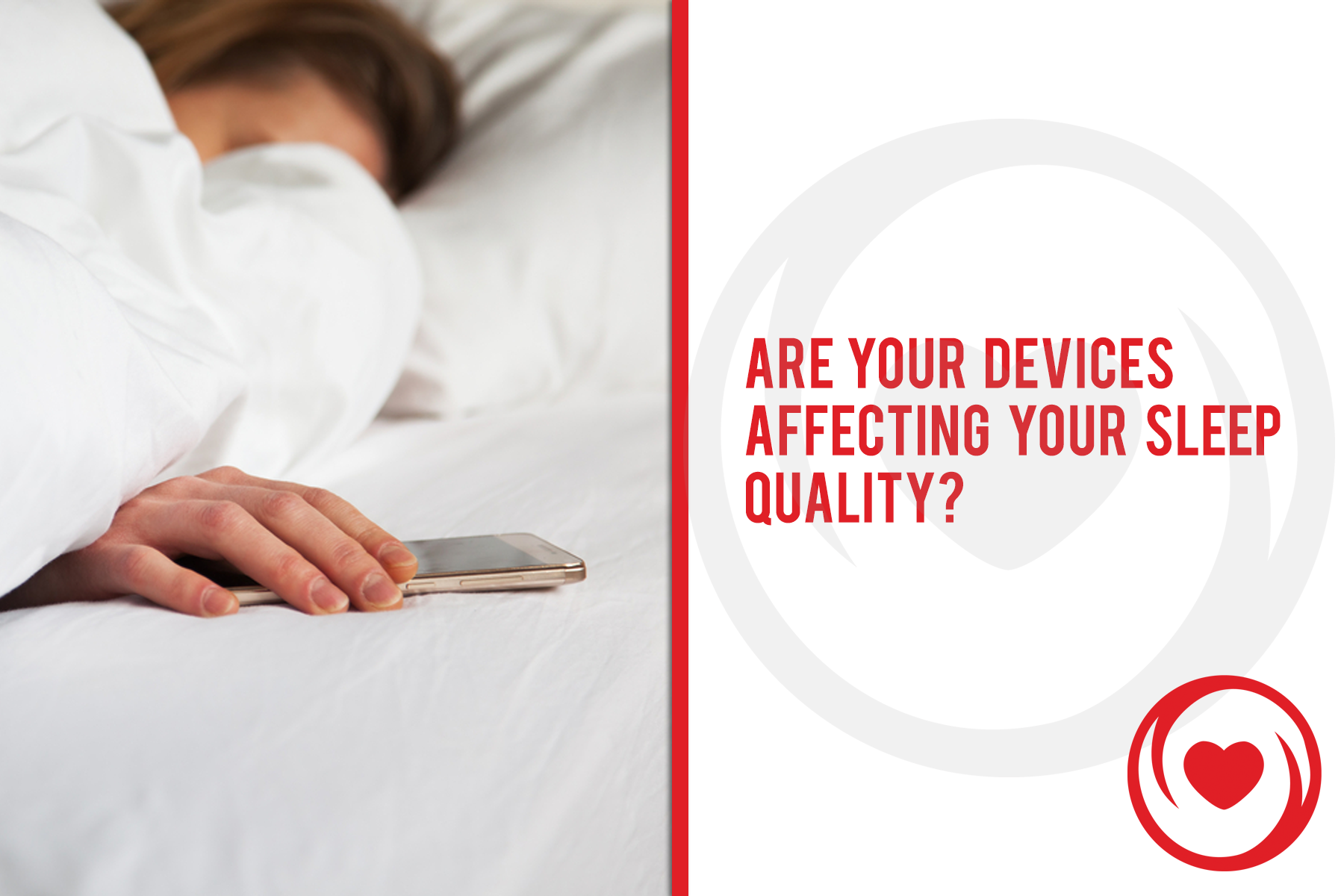Our devices have become such a part of our daily life that it becomes a struggle for most of us to put them down – even at bedtime. It’s estimated that roughly 70% of Americans now sleep with their phones or tablets either in their beds or on their nightstands. While this habit may seem benign enough, it in fact has major health implications. Learn how devices can impair your sleep quality and lead to other health issues and take steps to a better night’s rest.
The Melatonin Factor
Melatonin is a hormone produced at night that signals the brain that it is time to go to bed. The blue light emitted from devices sends mixed-signals to the brain and confuses it by thinking that it’s still daylight. This reduction in melatonin makes it harder to fall and stay asleep. For sound sleep practices, it’s best to allow yourself 30 minutes to an hour of screen-free time prior to bed.
They Keep Your Brain Alert
It seems harmless enough – you knock out some emails before bed or watch an episode of Fixer Upper. Research suggests however that by keeping your brain engaged, it makes it all the harder to turn it off and relax from your surroundings. After spending an entire day tuned in, your body and mind needs time to disconnect and unwind.
They Wake You Up
Just because you’re not using your cell phone before bed doesn’t mean that it can’t harm your sleep. Keeping a cell phone within reach can still disturb slumber thanks to the chimes of late night texts, emails, calls, or calendar reminders.
Forming Healthy Sleep Habits
The best option for good, restful sleep is setting up an environment that’s best suited for healthy sleep. The American Academy of Sleep Medicine recommends the following guidelines:
- Keep a consistent sleep schedule. Get up at the same time every day, even on weekends or during vacations
- Set a bedtime that is early enough for you to get at least 7 hours of sleep
- Don’t go to bed unless you are sleepy
- If you don’t fall asleep after 20 minutes, get out of bed
- Establish a relaxing bedtime routine
- Use your bed only for sleep and sex
- Make your bedroom quiet and relaxing. Keep the room at a comfortable, cool temperature
- Limit exposure to bright light in the evenings
- Turn off electronic devices at least 30 minutes before bedtime
- Don’t eat a large meal before bedtime. If you are hungry at night, eat a light, healthy snack
- Exercise regularly and maintain a healthy diet
- Avoid consuming caffeine in the late afternoon or evening
- Avoid consuming alcohol before bedtime
- Reduce your fluid intake before bedtime
NurseCore is a national leader in medical staffing and home care services. We are committed to exceeding the expectations of both our clients and employees, we specialize in connecting healthcare professionals, nurses, and caregivers with the medical facilities and home care positions in need of their expertise. NurseCore strives to relevant healthcare news, resources, and industry topics. Explore our blog and “like” us on Facebook!


0 Comments